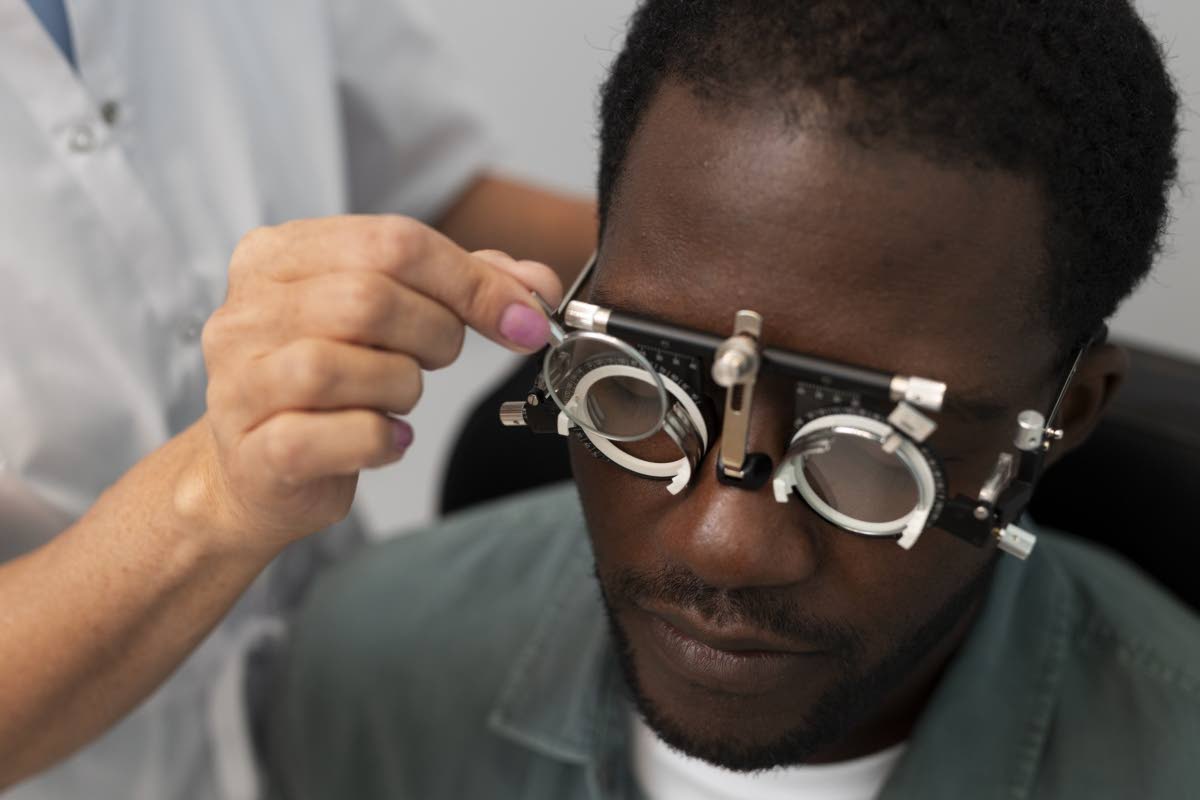Every year, millions worldwide lose their vision, not because their conditions were untreatable, but because they were detected too late. The World Health Organization (WHO) reports that at least 2.2 billion people globally suffer from near or distance vision impairment, with one billion of these cases being preventable or yet to be addressed. In observance of Blindness Awareness Month, the Trinidad Eye Hospital is emphasizing the importance of early detection and awareness in preventing vision loss.
Dr. Vachel Luces, a consultant ophthalmologist at the Trinidad Eye Hospital, highlighted that the leading causes of vision loss—refractive errors, cataracts, glaucoma, and diabetic retinopathy—are manageable if detected early. ‘Cataracts cloud the lens, glaucoma damages the optic nerve, and diabetes affects retinal circulation,’ he explained. ‘But early intervention can make all the difference.’
Globally, refractive errors and cataracts are the primary causes of vision impairment. However, WHO estimates that only 36% of those with refractive errors and 17% with cataracts have received appropriate treatment. The financial burden of vision impairment is staggering, with $411 billion lost annually in productivity.
Dr. Luces stressed that limited public understanding remains a significant barrier to eye health. ‘Most people only have a surface-level understanding of conditions like cataracts or glaucoma,’ he said. ‘This lack of awareness is why we focus so heavily on community education and free screenings.’
Josiah Ambris, an optometrist at the hospital, noted that many patients only seek help when their vision has already deteriorated. ‘Conditions like glaucoma develop silently, while diabetic eye disease may show early signs like floaters,’ he said. ‘Comprehensive eye tests are often the only way to detect these issues before permanent damage occurs.’
While some vision loss can be reversed—cataracts through surgery and refractive errors with corrective lenses—glaucoma causes irreversible damage. ‘Glaucoma is called the ‘silent thief of sight’ because it affects peripheral vision first, and by the time it’s noticed, the damage is permanent,’ Dr. Luces warned.
Children are also at risk, with some born with cataracts or glaucoma or developing them after injuries or other medical conditions. ‘Annual eye exams are essential for children, not just when they need glasses,’ Dr. Luces emphasized.
Good nutrition, including foods rich in antioxidants, omega-3 fatty acids, and vitamins A, C, and E, can support eye health. However, Dr. Luces cautioned against relying solely on diet. ‘Some eye diseases have contributing factors that only medical exams can detect,’ he said.
Both experts agreed that sudden floaters or flashes of light should not be ignored, as they could signal serious conditions like retinal tears. ‘Floaters are a symptom you don’t wait on,’ Dr. Luces stressed.
Lee Ann Lazarus, the hospital’s eye screening manager, emphasized the importance of regular screenings. ‘Screenings are quick, painless, and can save your sight,’ she said. Throughout October, the Trinidad Eye Hospital hosted free community and school screenings, urging everyone to prioritize their vision health.
